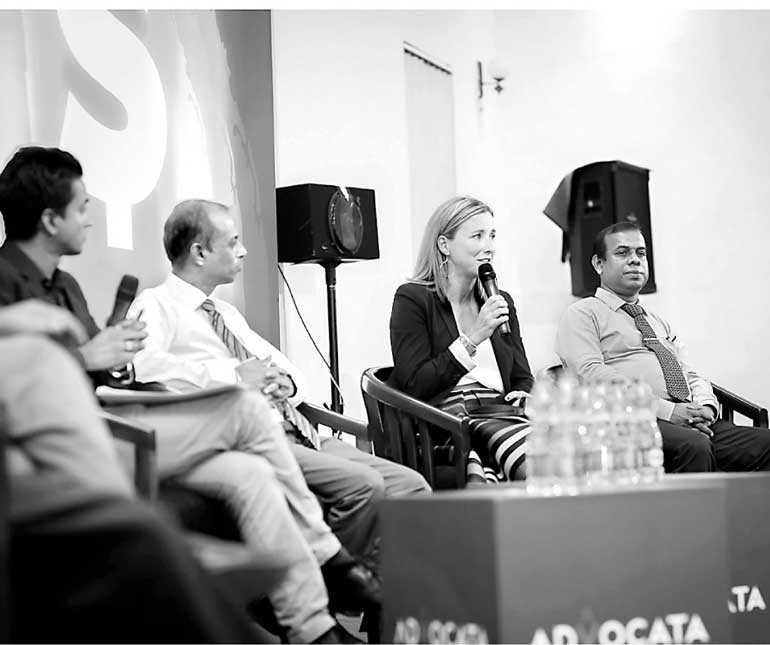Monday Feb 16, 2026
Monday Feb 16, 2026
Saturday, 21 September 2019 00:00 - - {{hitsCtrl.values.hits}}

The Advocata Institute on Thursday hosted a public forum on the MCC compact with the aim of separating fact from fiction around this hotly debated topic.
Since 2015, Sri Lanka has been engaged in a competitive selection process for the Millennium Challenge Corporation (MCC) grant. In April 2019, Sri Lanka was awarded a grant from the Millennium Challenge Corporation (MCC) for $480 million. Since the awarding of the compact, concerns around the agreement had gone unaddressed.
To help provide a public platform for the addressing of these concerns, The Advocata Institute convened an open discussion with experts involved in designing the projects for the MCC Compact – University of Moratuwa Department of Transport and Logistics Management Head Prof. Amal Kumarage, Road Development Authority (RDA) Highway Designs Deputy Director Dr. Saman Widanapathiranage and its Former Deputy Surveyor General Sarath Jayatilaka, MCC representatives, Millennium Challenge Corporation Sri Lanka Resident Country Director Jenner Endleman and Urban Development Authority Chairman Dr. Jagath Munasinghe.
The experts highlighted technical details of the land and transport management projects in the grant followed by a Q&A with representatives of the MCC and the Government.
Prof. Amal Kumarage explained that out of $350 million allocated to the Transport Project, $50 million would be spent on bus services modernisation. He stated that by 2030, the number of vehicles on Sri Lankan roads will triple and it is crucial for the transport system to reflect this.
Dr. Widanapathiranage discussed the Advanced Traffic Management System component in the Transport Project. He explained how the average speed in Colombo will be reduced to 10kmph by 2030, communicating the urgency of improving the city’s traffic management.
Sarath Jayatilaka detailed the Land Project in the compact which amounts to $67 million of the total grant. Since the Sri Lankan Government owns 82% of all land and the remaining 18% land is privately owned, he emphasised the importance of developing a State Land Bank to improve land administration policies.
Joining the Q&A, MCC Sri Lanka Resident Country Director Jenner Endleman answered some concerns around the compact. To the question of whether the MCC Compact is linked to military agreements, she answered that MCC has no relation to ACSA or SOFA and that the MCC Compact was ready for signing before the renewal of these military agreements. Another question posed was why the compact was not available in the public domain, to which she responded that it is the MCC’s policy to not share the document prior to it being signed by the recipient government. However, she urged concerned citizens to reach out to the Government to release these documents, as they are in a position to share the agreement.
“In our 15-year history, we’ve never had a situation where an eligible country has come to us and proposed a grant, our board has accepted it, and that same partner country has not approved it,” stated Endleman, addressing questions from the audience.
Advocata is an independent policy think tank based in Colombo, Sri Lanka. They conduct research, provide commentary and hold events to promote sound policy ideas compatible with a free society in Sri Lanka. Visit advocata.org for more information.